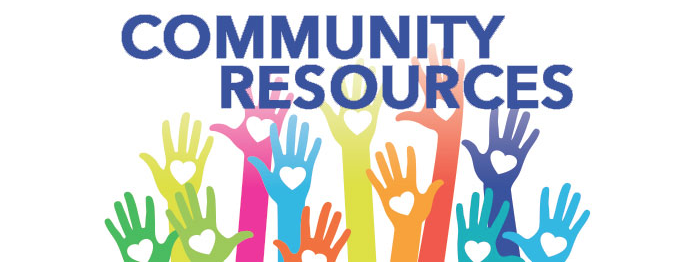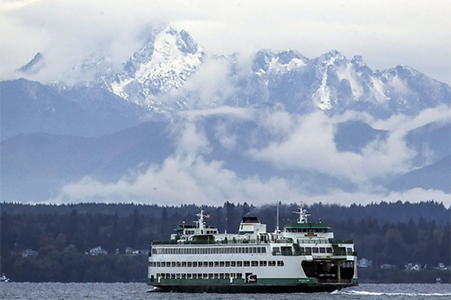||| BY MATTHEW GILBERT, theORCASONIAN OP-ED REPORTER |||
Approximately five weeks after the County Council issued an emergency six-month moratorium on new vacation rental permits, a public hearing was held to determine whether to continue the moratorium, extend and/or amend it, or discontinue it.
During the meeting, more than 50 members of the public submitted comments. Prior to that, the Council had received over 200 written comments. Both Erika Shook of the Department of Community Development (DCD) and Deputy Prosecutor Amy Vira were on hand to answer questions.
Since the call for a moratorium was initiated by the Orcas-based Vacation Rental Working Group (VRWG) back in late 2019, the issue has been hotly debated. It was a lightning rod of interest during the recent council campaign and had an impact on final election results. New Council member Cindy Wolf was especially vocal in supporting such a resolution.
One of the main complaints leveled against the VRWG and supporters of a moratorium was that only one side of the issue was being represented and that the locus of advocacy was on Orcas Island. The recent public hearing put those contentions to rest. Of those 50 comments, approximately two-thirds were voiced by opponents and equally represented both Orcas and San Juan Island. (A handful of commenters from Lopez were against the moratorium.) The majority of those against represented real estate interests, the building trades, and local vacation rental owners. Of the approximately one-third in favor of the moratorium, nearly all of them lived on Orcas.
Who – or What – to Believe?
The concerns raised by those against the moratorium coalesced around the following issues:
- There is insufficient data on the impacts of VRs to claim there’s a problem (“proven harm”) and justify a moratorium; such research should have been done before declaring an “emergency.”
- There are other ways to deal with such issues other than a moratorium.
- The discussion of a moratorium has not included a wide enough diversity of voices and interests.
- A moratorium will ruin the local economy just when it’s starting to recover from the pandemic.
- The scope of the moratorium is too broad given different dynamics on each island.
- Staff time should remain focused on the Comp Plan update and other pressing concerns such as climate change.
- There is little to no relationship between the growth of VRs and the shrinking availability of affordable long-term rentals.
- Short-term renters actually have lower impacts than longer-term renters.
- Existing permit holders depend on their rentals to get by financially and worry that any new restrictions will impact that revenue stream – in particular, the call for permits to expire when a property changes hands.
- If there was a bigger budget and political will to pursue enforcement of noncompliant (and non-permitted) VRs, we wouldn’t be having this conversation.
Alternatively, proponents of the moratorium have had their own list of concerns, many of which were reiterated at the meeting:
- What evidence is there that a moratorium will harm the local economy?
- What evidence is there that capping or even limiting VRs will harm the economy?
- Other locales dependent on tourism have successfully implemented regulations on vacation rentals without harming the economy.
- Research on impacts has been done and more data is needed, but without a moratorium as a “forcing function,” how or when will that happen?
- Harm is being done to legitimate lodging owners who are competing with more and more rental units – which themselves are competing more and more with each other.
- Many VRs are owned by out-of-state investors and corporations with no interest in sustaining the local community.
- This is not about shutting down the VR business but improving it before the impacts get worse.
- Public outreach has been extensive with meetings on all islands and a petition with nearly 3,000 signatures.
There was little discussion on the merits of any of the two sides’ claims and concerns other than agreement that local residents with permit applications in the pipeline were unnecessarily punished by the suddenness of the moratorium; local owners in general should be protected; wider input is welcome; and enforcement needs to be more robust (although the county did assess $100,000 in fines last year).
The question of what (if anything) to do about vacation rentals tends to be a tug of war between economic concerns and those over affordable housing and rural character. But it’s also a proxy for larger concerns among many that the islands and community life in general have come under increasing assault from over-tourism, escalating pressure on resource use – especially during the high season, steady growth in the permanent population (Building permits for single family residences went up 16% in 2020 compared to 2019, from 89 to 103.), price increases for rentals and properties, and tax hikes. The Comp Plan update is designed to address some of these issues, but it says nothing about “carrying capacity,” the county has little data on resource availability and use (e.g., water), and there is no Tourism Master Plan – critical given that tourism will likely remain the primary driver of the local economy for years to come.
A Lot to Absorb
After the public comment period was closed, Council members were asked if they had any questions.
To a question from Cindy Wolf on whether there is a way to treat local owners differently from off-site owners, Vira said there wasn’t as far as general rights go, but you could establish allowable uses and also require that an owner live on site.
Christine Minney asked if the scope of the moratorium could be narrowed. Yes. “And can the county allow exceptions to what the moratorium covers?” “I would need to do some research,” Vira responded, mentioning the impacts of changing the cutoff date as an example.
Jamie Stephens wondered if the moratorium could focus just on areas of high VR concentration instead of county-wide. “You could,” said Vira, “but the final regulations would need to be applied equally to all neighborhoods.” Controlling such activity could also be achieved by land-use designations, she added.
It appeared that council members were taken by surprise by the volume and velocity of resistance to the moratorium, but they weren’t swayed to make a final decision. “I need more time,” said Minney. “We’ve received over 200 emails and they’re still coming in. The Council hasn’t had time to hash this out.”
“Lots of concerns about VRs came up during last year’s campaign,” said Wolf, “and it’s not as if there hasn’t been a public process. It’s time to move forward. I want to bring VRs in line with other local lodging businesses and their impacts on occupancy. I want to examine the various impacts of VRs such as during high season. The moratorium was enacted in part to minimize the impacts on staff from dealing with new permits.
“It also saddens me to hear from VR owners that long-term renters have wrecked their property. I don’t think this is a universal truth. There is a missing voice here: the people employed in the VR industry as well as long-term renters. How do we bring them in?”
“I agree with Cindy on what we experienced during the campaign process,” added Minney, “now challenged by engagement with ‘the other side.’ We need to find our way through these guardrails. I publicly acknowledge that we don’t know what we don’t know.”
“I don’t think we need a moratorium for the more egregious issues,” said Stephens. “The Comp Plan can help here.”
Minney asked Vira what could happen at the end of six months. “The moratorium could be extended,” she replied. Shook had noted in her opening remarks that it took 18 months to complete the 2018 ordinance on compliance and that little would get done in six months.
Wolf summarized by asking, “What is best for the County versus individuals versus the long run? Let’s take more time. Another two weeks.”
A motion was then made – and unanimously approved – to continue the hearing on March 9 at 9:15 a.m.
- Visit the county’s “Vacation Rental Moratorium” page for documents, updates, and a listing of all public comments.
- See also the following study, submitted by Wolf, titled “The Effect of Home-Sharing on House Prices and Rents: Evidence from Airbnb.”
**If you are reading theOrcasonian for free, thank your fellow islanders. If you would like to support theOrcasonian CLICK HERE to set your modestly-priced, voluntary subscription. Otherwise, no worries; we’re happy to share with you.**








Excellent, informative article. Thank you.
David Turnoy
The intension of the moratorium is to assemble more data, look at impacts on neighborhoods and on various islands , who is most affected, advantages and disadvantages of forms of regulations, what has been done elsewhere. I’m not understanding what is meant when the county council says they “want more information” on deciding on extending, maintaining, or cancelling the moratorium when that’s the purpose of the moratorium. The moratorium will allow for a balanced analysis. The moratorium doesn’t affect existing vacation rental permits. Literally thousands of people have stated their desire for a moratorium. A six month or 12 month moratorium on new vacation rental applications is not going to destroy the economy.
Thank you for a very thoughtful article on the hearing.
The purpose of the moratorium is to gather data and analyse impacts of increasing vacation rentals on neighborhoods, various islands,
housing supply and affordable housing, impacts on services, increasing loads on water and septic systems, etc. and examine what has been
done in other places in the country to achieve a balance in sort term visitors and full time residents. The moratorium does not affect existing
vacation rentals but limits new vacation rental permits during the moratorium period of study. Limiting new permits for this period won’t devastate
the economy.
The county council wants more information to decide to cancel, maintain, or extend the moratorium for an additional six months. But
that is the purpose of the moratorium: to gather information, study the issues, and suggest a way forward for the coming decades. We need
to maintain the moratorium and extend it if necessary.
As we stated at the hearing, the VRWG would very much like to hold a dialogue with the VR stakeholders in order to help provide clarity for the County Council. We are grateful that Hosting on the Rock has emerged, and although there are differences, we now have the makings of a productive conversation. Thousands of islanders have supported the moratorium because they feel their quality of life is being harmed, and quality of life matters. We hope Hosting on the Rock agrees with this and wants VRs to be good neighbors in San Juan County.
The moratorium is an indispensable part of this process because it brings everyone to the table on an equal footing. It is necessary if we are to have a fair, open, transparent, and ultimately successful conversation.
The Municipality of Whistler addressed its housing problem by creating a new townsite for Whistler/Blackcomb employees. Maybe it is time for San Juan Island to create a new “environmentally friendly” townsite for year round residents priced out of the housing market by VRs. The county could analyze the benefits and costs of a new townsite vs limiting the number of VRs. I suggest that the County Council check out Whistler’s solutions for some ideas. I remember that the Whistler community held many meetings and had significant discussions on these issues.
I agree that the moratorium should be extended to consider all the issues on an equal footing.
Mary, isn’t a townsite for just employees also known as a “ghetto?” Or, do you favor keeping people on Orcas segregated by income/housing prices?
Thanks for all the hard work on this accurate and fair accounting. Much appreciated.
The discussion of moratorium, for how long.. so County officials can get a grasp on the impacts and implications is vital for sustainable progress.
If not done well, with viable intent.. the new standards applied will be viewed as shallow and unenforcible.
Again, it’s a Cultural issue.. There is no question that as it stands now the model that exists causes distain and unrest on the Community at large.
Property Rights are important, Being a Good Neighbor is just as important….
let’s give a reasonable pause for those making critical choices the opportunity to serve us ALL well. They can and will do it.
It’s a Big Sand box folks, let’s play nice so it’s enjoyable.
The stated concern,
“Existing permit holders depend on their rentals to get by financially and worry that any new restrictions will impact that revenue stream – in particular, the call for permits to expire when a property changes hands.”
This statement does not make sense. The moratorium will not affect existing permit holders -just issuance of new permits during the period of the moratorium. Calls for permits to expire when a property changes hands is just a proposal. The moratorium would not impose this.
The moratorium is a pause to allow careful consideration of all points of view.